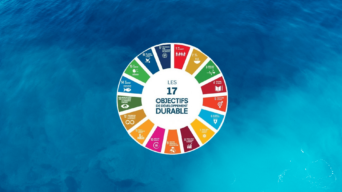SDG Summit: what is the mid-term review?
Plastic pollution
13 September 2023
On 18 and 19 September 2023, world leaders are gathering at the UN headquarters in New York for the Summit on the Sustainable Development Goals (SDGs).
While the annual General Assembly of the United Nations is taking place, political leaders, opinion leaders from international organisations, the private sector, civil society and NGOs will be taking a close look at the 2030 Agenda for Sustainable Development and the implementation of its 17 SDGs.
But what exactly is the 2030 Agenda?
In September 2015, the 193 UN Member States adopted the 2030 Agenda. This universal programme sets out a vision for transforming our world, ensuring its ecological transition and moving towards sustainable development by 2030.
The 17 Sustainable Development Goals and their 169 targets are at the heart of the Agenda 2030. They cover the full range of sustainable development issues: climate, biodiversity, energy, water, health, but also poverty, gender equality, economic prosperity, peace, agriculture, education, etc., and are interdependent.
After a comprehensive review of the state of progress of the SDGs, this summit must respond to the impact of the multiple and interdependent crises facing our world and provide political guidance on transformative actions to achieve the SDGs by 2030.
This second summit on the SDGs since the adoption of the Agenda in 2015 is the culmination of ten months of preparations involving governments, the UN system, the private sector, NGOs and others. In particular, it will benefit from the proposals made by an independent group of scientists through the World Report on Sustainable Development and the Secretary-General’s progress report on the SDGs.
To galvanise all the players ahead of the summit, the United Nations organised a weekend of action on the SDGs at UN headquarters on 16 and 17 September, giving all the stakeholders an opportunity to present their commitments, their contributions and their innovative and ambitious projects.
At the end of the two-day summit, a political declaration is due to be adopted that will provide a roadmap for putting the world back on track to achieve the SDGs by 2030.
Secretary-General Antonio Guterres urged world leaders to come up with a “Rescue Plan for People and Planet”, in particular by announcing national and global commitments.
And what about plastic pollution in the achievement of the SDGs?
In its own way, The SeaCleaners is taking part in this planetary effort to create a more equitable, preserved world, with prosperity shared by all.
Ocean pollution by plastic waste jeopardizes the achievement of several of the 17 SDGs. Combating the scourge of plastic pollution, at every level, therefore also means helping to meet the global challenges we face.
By committing to the fight against ocean plastic pollution, The SeaCleaners, its partners, supporters and volunteers have made the choice to join the movement of those working for a more sustainable future for all, and transforming the world.
To find out how, we refer you to our declaration of principles on the subject.
